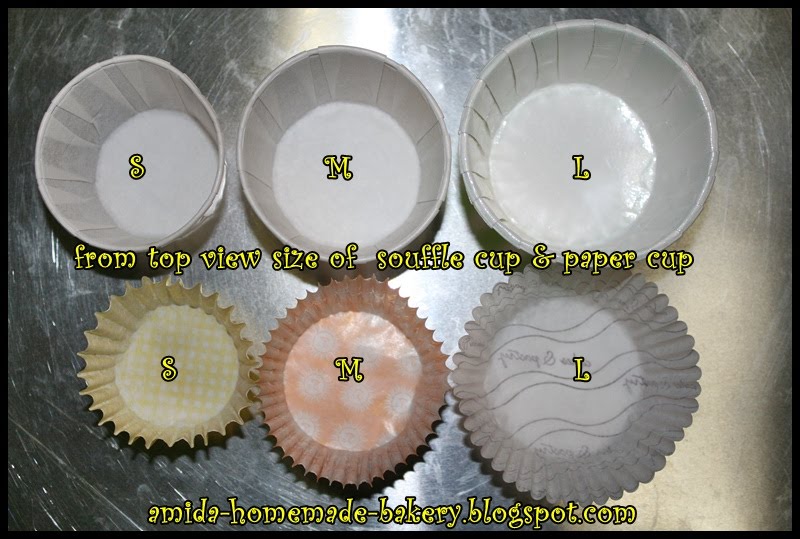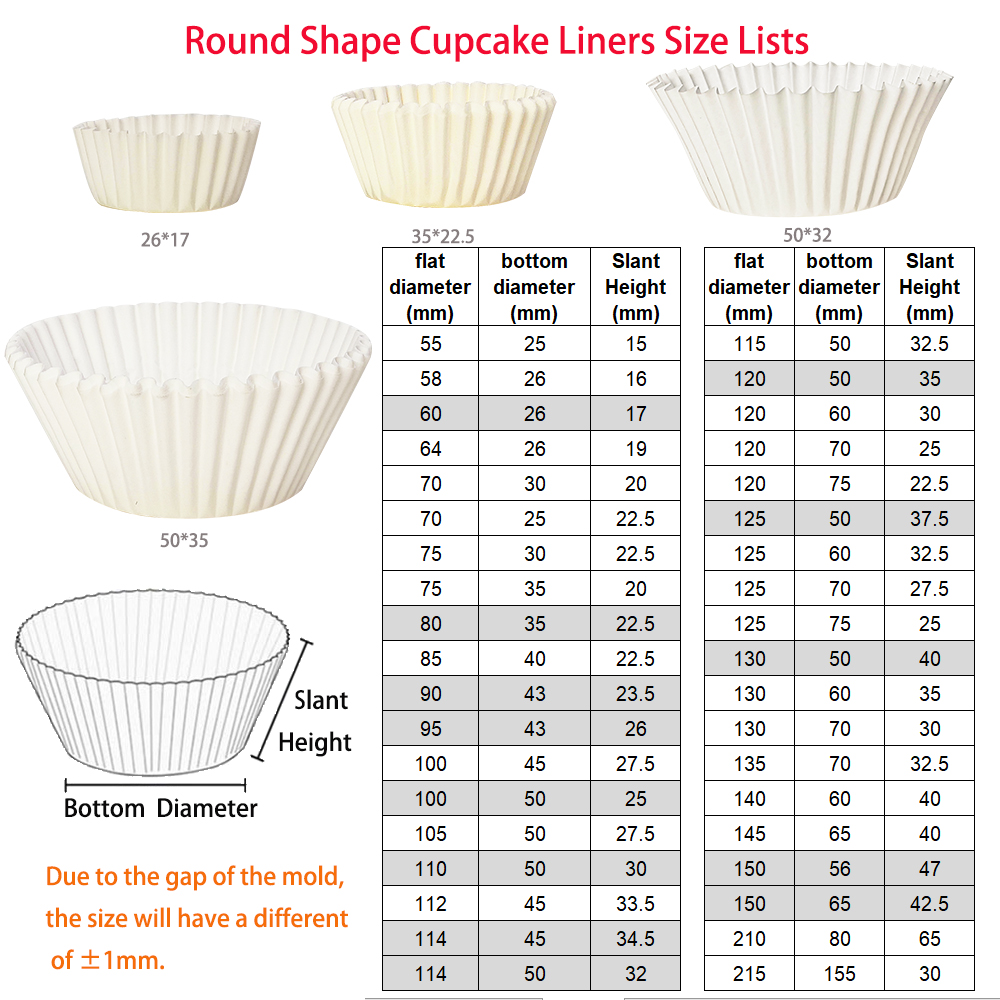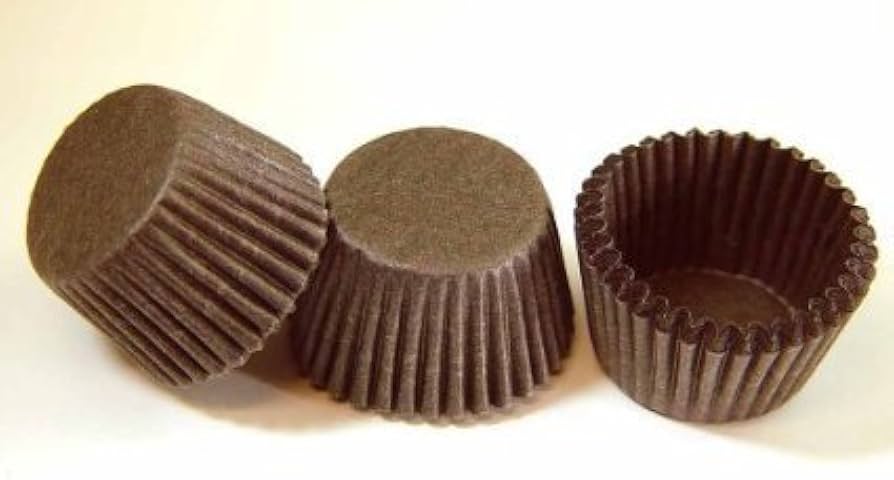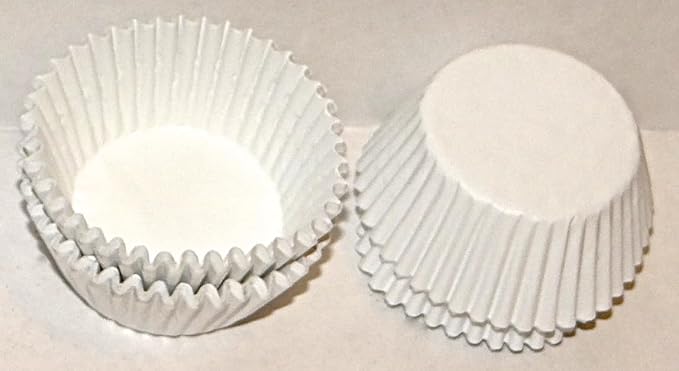
Ever wondered why your peanut butter cups taste different depending on where you buy them? The secret might be in the paper cup size. Getting the right cup size isn't just about appearance - it's crucial for the perfect dessert experience.
Choosing the appropriate paper cup size dramatically affects your peanut butter cup's flavor profile, temperature retention, and portion control. Small cups cool quickly, intensifying flavors. Medium cups maintain balanced temperature. Large cups create premium sharing experiences.
In this guide, you'll discover the three standard peanut butter cup paper cup sizes and their specific measurements. You'll learn how different sizes impact taste and presentation. We'll help you select the perfect size for home use, cafés, events, or specialty dessert shops.
Understanding Peanut Butter Cup Paper Cup Sizes
Peanut butter cup paper cups are specially designed containers that cradle the delicious combination of chocolate and peanut butter. These cups are crafted from food-grade paper with specific dimensions to enhance your dessert experience.
What Are Peanut Butter Cup Paper Cups?
Peanut butter cup paper cups are more than just containers. They're engineered vessels that protect your treat while influencing its flavor profile. Made from high-quality, often glassine paper, these cups come in various sizes to suit different serving needs.
Why Size Matters for Peanut Butter Cups
The size of your paper cup directly impacts your peanut butter cup experience in several ways:
Flavor concentration - Smaller cups cool faster, intensifying taste
Temperature control - Larger cups maintain ideal temperature longer
Portion management - Different sizes help control serving amounts
Presentation aesthetics - Cup size affects visual appeal and dessert perception
How Different Sizes Transform Your Dessert Experience
Cup size creates distinctly different experiences:
| Cup Size | Experience Type | Best For |
| Small (2-3 oz) | Intense, quick flavor burst | Sampling, kids, portion control |
| Medium (4-6 oz) | Balanced, standard experience | Everyday enjoyment, cafés |
| Large (7-8 oz) | Extended, premium experience | Sharing, special occasions |
Key Factors That Influence Size Selection
When choosing the perfect peanut butter cup paper cup size, consider these crucial factors:
Intended Use
Are you hosting a tasting event? Small cups excel.
Need everyday café options? Medium cups work best.
Planning premium desserts? Large cups create impact.
Customer Preferences
Health-conscious customers often prefer smaller portions.
Dessert enthusiasts might appreciate larger, more indulgent options.
Presentation Goals
Small cups create elegant, bite-sized presentations.
Medium cups provide a classic, satisfying appearance.
Large cups offer space for elaborate decorative elements.
Cost Considerations

Standard Peanut Butter Cup Paper Cup Sizes Explained
Finding the perfect paper cup size for peanut butter cups can transform your dessert experience. Let's explore the three standard sizes and their unique benefits.
Small Peanut Butter Cup Paper Cups (2-3 oz)
Small paper cups provide an intense flavor experience in a compact package. These petite cups are ideal when you want to control portions or create bite-sized treats.
Dimensions:
These compact cups cool quickly, which intensifies the flavor profile of your peanut butter cups. The faster cooling process creates a more pronounced contrast between the chocolate shell and peanut butter filling.
Best Uses:
✓ Tasting events and sampling stations
✓ Children's parties and school functions
✓ Portion-controlled dessert options
✓ Multi-flavor dessert flights
✓ Quick snacks and on-the-go options
Medium Peanut Butter Cup Paper Cups (4-6 oz)
Medium cups represent the "goldilocks" option – not too small, not too large, but just right for most standard servings.
Dimensions:
| Feature | Benefit |
| Balanced heat retention | Maintains ideal temperature throughout enjoyment |
| Standard sizing | Meets customer expectations for portion size |
| Versatile application | Works for most serving scenarios |
| Cost-effective | Optimal balance of material usage and portion size |
Medium cups are consistently the bestsellers because they offer the perfect individual portion while maintaining an ideal temperature. Their balanced heat retention keeps desserts at the perfect temperature longer than small cups but allows faster cooling than large cups.
Ideal Applications:
Daily café menu offerings
Standard dessert servings
Gift packages and retail sales
Corporate events
Large Peanut Butter Cup Paper Cups (7-8 oz)
When you want to make a statement or create a premium experience, large peanut butter cup paper cups deliver impressive results.
Dimensions:
These generous cups feature superior heat retention, keeping your desserts at the ideal temperature for extended periods. The larger size provides ample space for creative presentations and layered dessert compositions.
Premium Applications:
Shareable Desserts - Perfect for couples or small groups
High-End Presentations - Creates impressive visual impact
Specialty Menu Items - Justifies premium pricing
Signature Creations - Provides canvas for elaborate desserts
Gift Packages - Creates perception of luxury and abundance
While large cups have a higher unit price, they often deliver greater perceived value for premium offerings, making them cost-effective for upscale establishments and special occasions.

How Cup Size Affects Your Peanut Butter Cup Experience
The size of your paper cup does more than just determine how much dessert you get. It fundamentally changes your entire peanut butter cup experience through flavor development, temperature dynamics, and visual presentation.
Impact on Flavor Profile
The relationship between cup size and flavor intensity is more significant than many people realize. Here's how different sizes affect what you taste:
Small cups (2-3 oz) create a flavor intensity phenomenon:
Quick cooling concentrates flavors
Faster temperature changes create more pronounced flavor transitions
Higher ratio of outer chocolate to inner filling per bite
Flavor intensity scale by cup size:| Cup Size | Flavor Intensity | Flavor Development | |----------|------------------|-------------------| | Small (2-3 oz) | High intensity | Rapid, pronounced | | Medium (4-6 oz) | Balanced | Gradual, harmonious | | Large (7-8 oz) | Layered complexity | Slow, nuanced |
The sweet spot for optimal flavor experience depends on personal preference, but medium cups (4-6 oz) typically provide the most balanced flavor profile, combining adequate intensity with proper development time.
Temperature Retention Across Different Sizes
Temperature drastically affects how we perceive flavors, making this a crucial consideration when selecting cup sizes.
Cooling rate comparison:
Small cups (2-3 oz) - Cool rapidly (typically within 5-7 minutes)
Medium cups (4-6 oz) - Moderate cooling (typically 8-12 minutes)
Large cups (7-8 oz) - Slow cooling (can maintain temperature for 12-15+ minutes)
For hot peanut butter cup desserts, larger cups maintain serving temperature longer, allowing flavors to develop gradually. For cold desserts, smaller cups prevent excessive melting while still allowing optimal flavor release.
Pro tip: For temperature-sensitive creations, medium cups (4-6 oz) offer the ideal balance between flavor development and temperature control.
Presentation and Visual Appeal
Cup size dramatically influences visual presentation, which affects perception before the first bite even happens.
Visual impact by cup size:
Small cups create delicate, elegant impressions - perfect for high-end tasting menus and sophisticated presentations
Medium cups project a satisfying, approachable aesthetic - ideal for everyday enjoyment
Large cups deliver dramatic, impressive visual statements - excellent for centerpiece desserts
For Instagram-worthy presentations, consider:
Small cups (2-3 oz) for minimalist, artistic arrangements
Medium cups (4-6 oz) for classic, recognizable presentations
Large cups (7-8 oz) for elaborate, multi-element compositions with decorative toppings
The cup size you choose sets expectations before tasting even begins, making it a crucial element in crafting memorable peanut butter cup experiences.
Choosing the Right Peanut Butter Cup Paper Cup Size for Your Needs
Finding the perfect cup size depends greatly on your specific situation. Let's explore the ideal options for different scenarios.
For Home Use
Home settings call for practical yet enjoyable peanut butter cup experiences. Consider these approaches:
Family Dessert Recommendations:
Weeknight treats: Medium cups (4-6 oz) provide satisfying individual portions
Weekend indulgences: Large cups (7-8 oz) create special family moments
Lunchbox snacks: Small cups (2-3 oz) offer portion control for children
When entertaining guests, cup size can make a significant impression:
| Occasion | Recommended Size | Presentation Tip |
| Casual gathering | Medium (4-6 oz) | Serve on colorful plates |
| Elegant dinner party | Small (2-3 oz) | Arrange on tiered stands |
| Holiday celebration | Mixed sizes | Create visual variety |
Storage considerations: Smaller cups require less refrigerator space but may need protective containers to prevent crushing. Large cups store efficiently in stackable arrangements but need more overall space.
For Cafés and Coffee Shops
Cafés must balance customer satisfaction with operational efficiency when selecting cup sizes.
Customer preference breakdown:
Morning customers typically prefer small (2-3 oz) portions
Afternoon patrons favor medium (4-6 oz) servings
Evening customers often splurge on large (7-8 oz) indulgences
When pairing with beverages, follow these guidelines:
Small cups complement espresso and small coffee drinks
Medium cups balance perfectly with standard coffee sizes
Large cups pair well with specialty lattes and frozen drinks
Inventory management tips:
Stock 50% medium, 30% small, and 20% large cups for balanced inventory
Order medium cups in bulk for cost savings
Rotate specialty sizes seasonally to manage storage and freshness
For Events and Catering
Events require strategic cup size planning to maximize impact while managing logistics.
Effective sampling strategies:
✓ Use small cups (2-3 oz) for multi-item tasting stations
✓ Offer medium cups (4-6 oz) for signature dessert features
✓ Reserve large cups (7-8 oz) for VIP service or centerpiece displays
For large gatherings, consider these volume calculations:
Wedding reception (100 guests): 150 small cups OR 100 medium cups
Corporate event (50 guests): 75 small cups OR 50 medium cups
Family celebration (25 guests): 25 medium cups OR 15 large cups
The mixed-size approach creates memorable experiences—offer small cups for sampling, medium for standard servings, and a few large cups as premium options.
For Specialty Dessert Shops
Specialty shops can leverage cup sizes to create distinct brand positioning.
Premium presentation techniques:
Small cups: Arrange in artistic patterns for Instagram-worthy displays
Medium cups: Use as foundations for elaborate topping creations
Large cups: Showcase as shareable signature desserts with custom garnishes
When creating signature peanut butter cup desserts, cup size determines composition possibilities:
Small cups excel with premium single-origin ingredients
Medium cups provide space for layered flavor combinations
Large cups allow for inclusion of complementary elements like caramel or fruit
Menu diversity thrives with strategic size variations—offer small cups for sampler plates, medium for standard menu items, and large cups for premium "chef's special" features.

Sustainability Considerations for Peanut Butter Cup Paper Cups
As environmental awareness grows, sustainability has become a crucial factor when selecting peanut butter cup paper cups. The size you choose impacts not just your dessert experience, but also your ecological footprint.
Eco-Friendly Materials Across Size Categories
Different cup sizes present varying opportunities for sustainable materials:
| Cup Size | Sustainable Material Options | Environmental Benefits |
| Small (2-3 oz) | Glassine paper, Recycled paper | Lower resource usage, Easier decomposition |
| Medium (4-6 oz) | Compostable paper, Plant-based liners | Balanced durability and biodegradability |
| Large (7-8 oz) | Recycled cardboard, Bio-based composites | Sturdy without plastic, Higher recycled content |
At Get Bio Pak Co., Ltd, we prioritize sustainable materials across all cup sizes. Our high-quality, environmentally responsible options maintain exceptional performance while reducing environmental impact.
Waste Reduction Strategies
Smart sizing choices can significantly reduce waste:
Right-sizing approaches:
Match cup size precisely to serving needs
Avoid oversized cups for small portions
Consider portion control in sustainability planning
Practical waste reduction tips:
For home use: Purchase multi-packs of appropriately sized cups
For cafés: Track size preferences to optimize inventory
For events: Calculate precise quantities needed to prevent excess
For specialty shops: Offer incentives for customers choosing smaller sizes
Balancing Size with Environmental Impact
Finding the sweet spot between customer satisfaction and environmental responsibility requires thoughtful consideration:
Environmental impact comparison:
✓ Small cups (2-3 oz): Lowest material usage but may need multiple units for larger servings
✓ Medium cups (4-6 oz): Balanced material efficiency for standard portions
✓ Large cups (7-8 oz): Higher material usage but excellent for shared desserts
Sustainability tip: Consider the total environmental footprint. Sometimes a single large cup shared between two people has less impact than two small individual cups.
When developing your peanut butter cup serving strategy, evaluate both immediate waste (packaging materials) and downstream impacts (energy for transportation, storage space requirements). The optimal approach balances size efficiency with customer experience.
Cost Analysis: Finding Value in Different Cup Sizes
Understanding the economics of peanut butter cup paper cups helps you make cost-effective decisions without sacrificing quality. Let's explore how to maximize value across different cup sizes.
Unit Pricing Considerations
Cup size directly impacts your cost per serving. Here's how the numbers typically break down:
| Cup Size | Approximate Unit Price | Cost Per 100 Servings |
| Small (2-3 oz) | $0.03-0.05 | $3.00-5.00 |
| Medium (4-6 oz) | $0.05-0.08 | $5.00-8.00 |
| Large (7-8 oz) | $0.08-0.12 | $8.00-12.00 |
Key pricing factors to consider:
Material quality affects durability and customer experience
Printing and customization add costs but enhance brand value
Specialized sizes may carry premium pricing
Bulk Purchasing Advantages
Bulk orders significantly reduce costs across all cup sizes, but the benefits vary:
Bulk discount comparison:
Small cups: Often highest percentage discount (15-25%)
Medium cups: Moderate discount rates (10-20%)
Large cups: Lower discount percentages (8-15%)
Despite lower percentage discounts, larger cups may still offer better value in bulk due to their higher base price. Calculate total cost savings rather than focusing solely on discount percentages.
Pro tip: When ordering in bulk, consider storage requirements and shelf life to avoid waste from expired inventory.
Long-term Cost Efficiency Analysis
Looking beyond the initial purchase price reveals true cost efficiency:
Cost efficiency factors:
✓ Customer satisfaction and return visits
✓ Labor costs for preparation and serving
✓ Storage space requirements
✓ Waste management expenses
Medium cups (4-6 oz) typically offer the best long-term cost efficiency for most applications, balancing material costs with operational efficiency and customer satisfaction.
Perceived Value vs. Actual Cost
The size of your peanut butter cup paper cup significantly impacts how customers perceive value:
Value perception scale:
Small cups: Appear economical but may disappoint if priced too high
Medium cups: Meet standard expectations for value
Large cups: Create premium impressions that justify higher pricing
For specialty dessert shops, the perceived value of large cups often outweighs their higher cost, allowing for premium pricing that improves profit margins. A 7-8 oz cup might cost only 50% more than a medium cup but can command a 100% price premium when filled with a signature creation.
Frequently Asked Questions About Peanut Butter Cup Paper Cup Sizes
What's the best cup size for a coffee shop serving peanut butter cups?
For coffee shops, medium cups (4-6 oz) typically offer the optimal solution:
Customer satisfaction: Meets expectations for standard portions
Pairing potential: Complements average coffee serving sizes
Cost efficiency: Balances material costs with perceived value
Versatility: Works for both eat-in and takeaway orders
Most successful coffee shops stock 70% medium cups, 20% small cups (for samplers and children), and 10% large cups (for premium offerings).
How do different cup sizes affect the taste of peanut butter cups?
Cup size significantly influences flavor experience through temperature dynamics:
| Cup Size | Temperature Effect | Flavor Impact |
| Small (2-3 oz) | Cools quickly | Intensifies flavors, creates sharper contrasts |
| Medium (4-6 oz) | Balanced cooling | Harmonious flavor development, consistent taste |
| Large (7-8 oz) | Retains heat longer | Gradual flavor evolution, subtle complexity |
The ideal size depends on your specific dessert composition and desired flavor profile.
Are larger cups more cost-effective for bulk purchases?
Larger cups can be cost-effective despite higher unit prices when considering:
Labor efficiency - Fewer units to prepare and fill
Storage optimization - Less packaging per volume of product
Premium pricing potential - Higher margins on deluxe offerings
For high-volume operations, the economics often favor medium cups with occasional large cups for specialty items.
How do I choose between paper cup sizes for a large event?
For large events, consider these strategic approaches:
Event cup size selection guide:
✓ Formal gatherings: Small cups (2-3 oz) for elegant, controlled portions
✓ Casual celebrations: Medium cups (4-6 oz) for satisfying standard servings
✓ Premium experiences: Large cups (7-8 oz) for impressive, shareable desserts
Most successful events utilize a mix of sizes: small cups for sampling stations, medium for standard service, and a limited number of large cups for featured desserts.
Can I use the same cup size for both hot and cold peanut butter cup desserts?
Yes, the same cup sizes work for both hot and cold desserts, but with important considerations:
Small cups (2-3 oz): Ideal for cold desserts; may cool hot desserts too quickly
Medium cups (4-6 oz): Versatile for both hot and cold applications
Large cups (7-8 oz): Excellent for hot desserts; may allow cold desserts to warm too much
Medium and large cups generally perform better for temperature retention. For cold desserts in small cups, consider serving immediately or keeping refrigerated until presentation.
Conclusion
Selecting the right peanut butter cup paper cup size dramatically impacts your dessert experience. Small cups deliver intense flavors. Medium cups provide balanced experiences for everyday enjoyment. Large cups create premium, shareable moments.
For home use, medium cups work best for families. Coffee shops should stock primarily medium cups with some variety. Events benefit from mixed sizes to create diverse experiences.
Remember that the perfect size depends on your specific needs. Don't hesitate to experiment with different cup sizes. Find your ideal balance between flavor, presentation, and value.




























